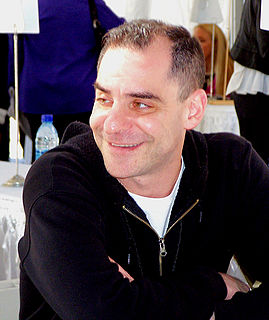A Quote by Paramahansa Yogananda
It is a great mistake to regard a certain object as pleasurable in itself and to store the idea of it in the mind in hope of fulfilling a want by its actual presence in the future. If objects were pleasurable in themselves, then the same dress or food would always please everyone, which is not the case.
Related Quotes
We don’t go further than what Marx called the exchange value of the actual object - we don’t think about the relations that that object embodies - and were important to the production of that object whether it’s our food or our clothes or our I-pads or all the materials we use to acquire an education at an institution like this. That would really be revolutionary to develop a habit of imagining the human relations and non human relations behind all of the objects that constitute our environment.
Let's call something a rigid designator if in every possible world it designates the same object, a non-rigid or accidental designator if that is not the case. Of course we don't require that the objects exist in all possible worlds.... When we think of a property as essential to an object we usually mean that it is true of that object in any case where it would have existed. A rigid designator of a necessary existent can be called strongly rigid.
The rhythmic pattern of the poem, which forces continuity of attention - incites a pleasurable compulsion to 'follow' - is either a tried metrical suasion-contrivance or a specially invented pattern of physical insistences, equally, if not more, binding in its effect on the reader. From a straight linguistic point of view, there is room for wonder if there is not latent vice in this environment in which pleasurable physically-compelled responses, produced by incidents of poetic utterance, are identified with the Good.
Know that for the human mind there are certain objects of perception which are within the scope of its nature and capacity; on the other hand, there are, amongst things which actually exist, certain objects which the mind can in no way and by no means grasp: the gates of perception are closed against it.









































